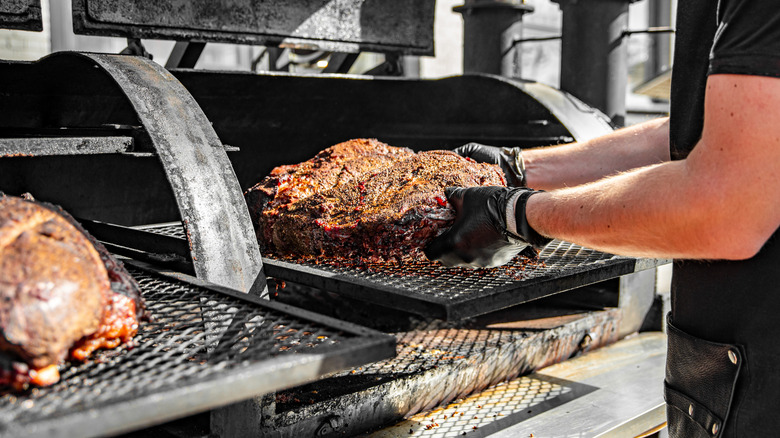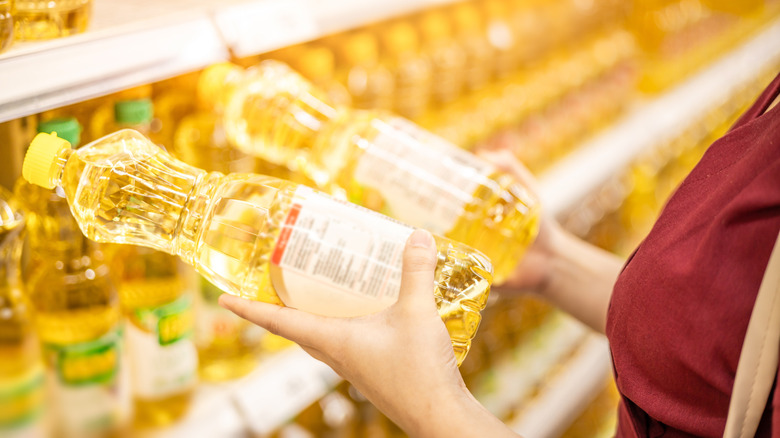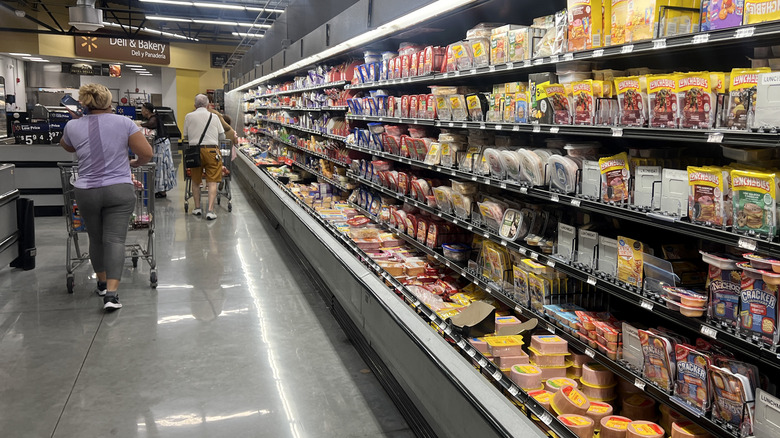Scientists Discover Hidden Cancer-Causing Chemicals In Everyday Food
The fear of one day getting diagnosed with cancer is something we all share. In 2025 alone, there were over 2 million new cancer cases and over 600,000 deaths in the U.S. according to data from the National Cancer Institute. We know there are some things we can do to lower our risks of cancer, such as maintaining a healthy weight, avoiding tobacco, eating healthy, and perhaps avoiding red meat. Now, a new study has found cancer-causing chemicals in food we might not have originally suspected.
A study looked into chemicals called polycyclic aromatic hydrocarbons (PAHs) and their quantity in food. These chemicals include cancer-causing compounds, and for most adults who don't smoke or work around PAHs, food is the main way they are exposed to them. The study found that cooking activities such as frying, grilling, and smoking food created PAHs in the food itself. It also found PAHs were more prevalent in some foods over others. The foods with the highest PAHs levels were soybean oil, duck meat, canola oil, and pork.
The research was undertaken by three researchers from the Seoul National University of Science and Technology and published in Food Science and Biotechnology. This study shines a light on dangerous foods and preparation methods to help us stay healthy.
The research done into these cancer-causing chemicals
Polycyclic aromatic hydrocarbons are oily chemical compounds that form when foods are cooked at high temperatures. Many of them are tied to serious health risks. One of the best-known PAHs, benzo[a]pyrene, is officially classified as a cancer-causing substance. However, the study points out that it's not enough to look for just this one compound. Food should be checked for a group of eight PAHs because they often appear together in foods and can form even more harmful by-products through chemical reactions or environmental exposure.
To understand how widespread these chemicals are in everyday foods, the researchers collected 44 food items that are commonly eaten in Korea, including fruits, vegetables, oils, meats, and seafood. All the samples were bought from a local market to reflect what shoppers would find on store shelves. Once collected, the foods were labeled and frozen to keep them from breaking down or losing any PAHs. Before testing, the team thawed each item and prepared it using standard procedures to accurately extract and measure the chemical levels.
The researchers checked how well the tests could detect tiny amounts of PAHs, how precise the results were, and whether the method produced consistent results each time. Through this, they were able to identify the most contaminated foods for PAHs. This type of research — like the study that found a link between energy drinks and cancer — is important to identify the most dangerous types of food.
The most dangerous foods with cancer-causing chemicals
The study found that soybean oil had the highest levels of PAH contamination, followed by duck meat and canola oil. Soybean oil tends to pick up PAHs during production, especially in places where soybeans are dried using smoke, which allows these chemicals to stick to the seeds and pass into the oil. Duck meat gets contaminated because it is largely prepared through smoking, which creates PAHs. Canola oil has PAHs because of the way it is heated and processed.
Though those were the most dangerous foods found, they weren't the only ones found with high levels of PAHs. These foods included pork, processed meats, milk, eel, mackerel, shrimp, anchovies, kimchi, and rice cakes. PAHs cling easily to fats, and when fatty foods are heated at high temperatures, they can generate even more of these cancer-linked compounds.
To protect your health, it might be best to avoid the foods listed in the study in your future grocery runs. Diet coke also has been found to potentially increase cancer risk. Avoid highly processed foods by eating things closer to their natural state and reduce how often you smoke meats. According to this research, all these actions can help to protect you from cancer.


